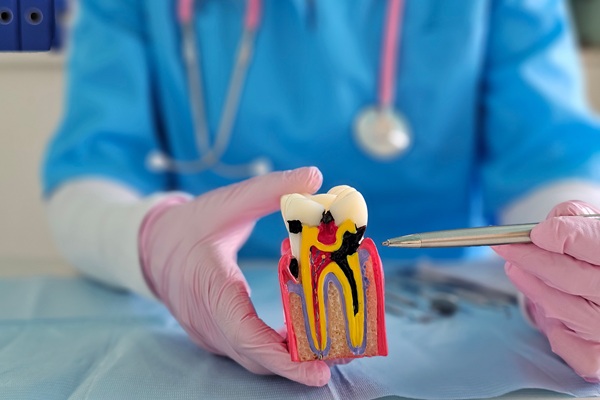Root Canal vs. Extraction: Make the Right Choice for Your Oral Health

A root canal is a common procedure a general dentist with endodontic training performs to save a tooth that has become infected or severely decayed. However, when faced with deciding between a root canal and tooth extraction, many patients are uncertain about which option is most suitable for their oral health. Both treatments have pros and cons, and the right choice depends on the condition of the tooth, the patient's overall health, and their long-term oral goals.
The benefits of a root canal
A root canal can save a damaged or infected tooth, allowing it to remain in the mouth and function normally. During the procedure, the dentist removes the infected pulp from the tooth, cleans the root canal, and seals it with a filling material. Once the procedure is complete, the tooth is restored with a dental crown to protect and reinforce it.
One of the main benefits of a root canal is that it preserves the natural tooth structure. Keeping the natural tooth is ideal for maintaining proper alignment and function of the surrounding teeth. By preserving the natural tooth, a root canal helps prevent potential issues such as shifting adjacent teeth or bite problems that may occur after an extraction. Additionally, the procedure is typically effective in relieving pain and eliminating infection, allowing the tooth to last for many years.
The drawbacks of a root canal
While root canals can save a damaged tooth, it is not always the most suitable option. A root canal can be time-consuming and may require multiple visits to the dentist, especially if the infection is extensive or complicated. After the procedure, the tooth may be more vulnerable to fractures or damage, particularly if it is significantly weakened by decay. As a result, the tooth may eventually need further treatment or replacement.
In some cases, a root canal may not completely eliminate the infection, requiring additional procedures or, in rare cases, tooth extraction. If a tooth is severely infected or damaged beyond repair, a root canal may not be viable.
The benefits of an extraction
Extraction, or removing a damaged or infected tooth, may be necessary when a root canal is impossible or the tooth is beyond saving. Extracting a tooth eliminates the infection and prevents it from spreading to other teeth or areas of the mouth. It also alleviates any associated pain or discomfort.
An extraction may be a more straightforward option than a root canal, particularly in cases where the tooth is severely decayed or damaged. For patients with advanced periodontal disease or significant tooth damage, removal may be necessary to prevent further complications.
The drawbacks of an extraction
While tooth extraction can provide immediate relief, a replacement tooth, such as a dental bridge, dental implant, or denture, is necessary. This replacement can be costly and may require additional procedures, such as bone grafting, to ensure a proper fit and optimal functionality. Additionally, missing teeth can affect the bite, lead to shifting of adjacent teeth, and cause aesthetic concerns, particularly if the extraction occurs in the front of the mouth. Extracting a tooth can also impact long-term oral health by affecting the surrounding bone structure, as it will deteriorate without an effective solution.
Schedule an appointment
Deciding between a root canal and tooth extraction depends on various factors, and you should not make this decision by yourself. Consulting a general dentist can help you better weigh both options. Contact Elite Dental and Orthodontics to schedule an appointment.
Request an appointment here: https://elitedentalandorthodontics.com or call Elite Dental and Orthodontics at (310) 668-1088 for an appointment in our Los Angeles office.
Check out what others are saying about our dental services on Yelp: Root Canal in Los Angeles, CA.
Related Posts
Because you never know when an emergency situation is going to happen, understanding how to handle a dental emergency is important. It could even mean the difference between saving and losing a tooth.Finding out how to stay calm during a dental emergency is one of the most important things you can learn how to do. It…
Many people wonder when to call an emergency dentist for cuts, tears, or bites to the lips, cheeks, tongue, and gums. While these soft tissue injuries can look scary, prompt dental care can protect comfort, reduce infection risk, and save teeth. A general or family dentist who handles urgent cases can guide this care right…
Dental restoration is key to the success and appearance of dental implants. After a dental implant is placed, you must select the appropriate restoration to complete the process and restore both the function and appearance of your smile. Various options are available, each with its benefits depending on your needs and the condition of your…
A kid-friendly dentist offers services for children. They have some similarities to a pediatric dentist, although the two titles are not interchangeable. It is helpful to understand the difference between the two titles and how to determine which one to should visit in order to make an informed decision when choosing a child’s dentist. Kid-friendly dentists…















